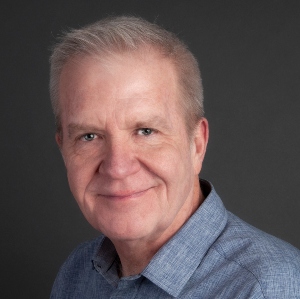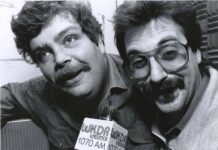
(By Buzz Knight) Radio, as an entertainment and communication medium, has undergone significant changes and advancements over the years. While the term “radio” originally referred to the transmission and reception of audio signals through electromagnetic waves, the evolution of technology has expanded the capabilities of this medium.
Today, radio encompasses not only traditional over-the-air broadcasting but also online streaming, podcasts, satellite radio, and other digital entities. As the medium continues to be fluid, it continually dredges up the same baffling question: Why does radio run away from the term radio?
For example, Vermont Public Radio became Vermont Public last year.
Is this continual trend a marketing and branding strategy or a continual inferiority complex, or both? As new technologies emerged, and the digital age transformed the way we consume media, broadcasters and content creators sought to adapt and stay relevant. To appeal to a wider audience and reflect the broader range of services they offer, they began to use terms like “audio streaming” or “online radio” to describe themselves.
With that, they began to develop this internal neurosis about the word radio.
By distancing themselves from the term, many believed it eliminated the perception of being outdated. This rebranding did allow them to emphasize other factors of their product offering such as convenience, accessibility, and diversity of content. At the same time, those that decided to drop the term radio thought it would be a way to attract younger demographics.
However, this slap in the medium’s face misses the mark because it overlooks a fundamental truth: the offerings, such as formats and personalities, are more significant in attracting younger audiences than the change of terminology.
It is worth noting that while the terminology may change, the essence of radio/audio content transmitted and consumed by audiences remains at the core of these new platforms. The ways we access, and experience radio have evolved, but the fundamental concept of audio communication persists.
As entities such as SiriusXM compete for audiences with traditional radio, it is worth assessing this exercise in a game of “wordplay” to try and stay relevant with audiences.
Buzz Knight can be reached by e-mail at [email protected]. Read Buzz’ Radio Ink archives here.






The “radio” business I recall was a building full of busy studios and live local personalities 24/7. It was programmed for the area it served by the people AT the station. It was also a lot of fun for everybody who worked there from the receptionist and janitor to the GM. Listeners actually showed up at “radio station” remotes. Now that “radio” has been replaced by “audio” in many instances, I don’t see much similarity in the product or the two descriptors. Maybe it was time to change because in many (not all) circumstances, radio doesn’t sound like radio anymore.
Someone once told me “Fish where the fish are”. Over the years we’ve tried to make our service appealing to people who will never listen (“We gotta get younger.” “We gotta get older”) and we’ve spent way too much time improving the product for people currently using it. Wouldn’t growing what you’ve got already be a better strategy? I’m just askin’.
Unfortunately , we are doing our competitors work for them by discounting and rebranding our unique and competitive advantage in the marketplace. Radio is who we are and we shouldn’t be insecure about celebrating our medium….!
This business?! Still having debates about what to call itself. Ridiculous. For a medium that has been around for a hundred years and constantly wondering what word to use to describe itself… I mean, are younger audiences really worrying about this? Ad agencies asking for radio to use the word “radio”…. no.
Here’s the problem.
Morning show’s are too old.
PD’s are too old.
CEO’s are tool old.
All of the radio conferences with the same people, saying the same things are too old.
Radio is now a medium for “older” people. And, that’s OK.